Bruce Springsteen’s Remarkably Varied ‘Tracks II: The Lost Albums’—Review
by Jeff BurgerWhen it comes to mining the vaults, the Boss still has a way to go to catch up to the Bard. Bob Dylan has offered a ton of archival releases, including the Bootleg Series, which now encompasses nearly 60 CDs. Bruce Springsteen is headed in the same direction as Dylan though, having issued lots of vintage material on expanded editions of his many LPs as well as concert albums and Tracks, a four-CD, 66-song outtakes anthology that came out in 1998. And now we have Tracks II: The Lost Albums, a seven-CD (or nine-LP) collection of 83 songs that he recorded between 1983 and 2018 but never got around to unveiling until its release on June 27, 2025.
Moreover, this compendium, which Springsteen assembled during the COVID shutdown, isn’t the end of the line. In a documentary about the release, he mentions that “there will be a Tracks III.” He recently told the New York Times that it’s “finished” and contains five albums’ worth of material dating back to 1973.
While fans await that box, they will find plenty worth savoring in the current one. True, a handful of the songs on Tracks II are subpar or underdeveloped and remained in the can for good reason. However, the lion’s share of this material is just as compelling as much of what Springsteen has included on his many hit albums.
Different versions of nine of the compositions have previously been issued, but the remainder of this box’s contents has heretofore not been officially released in any form. “Over a period of time,” explains Springsteen, “I built up a small collection of full albums that for one reason or another never got put out.”
The material is remarkably varied. However, that shouldn’t surprise anyone who has followed the Boss’ career, which has resulted in albums as dissimilar as Born to Run, Nebraska, Western Stars and We Shall Overcome: The Seeger Sessions.
Let’s look at the seven albums included in Tracks II.
LA Garage Sessions ’83
This is the oldest album in the box. Springsteen recorded its 18 tracks after finishing up Nebraska and before completing Born in the U.S.A. “If you’d taken Nebraska and did one more step of development, bringing a rhythm section in, that’s what this was,” he says in the liner notes. “It’s very lo-fi.” It’s also not the most impressive disc in this package, though it includes some fine moments.
Springsteen plays all the instruments on this set, though his guitar tech, Mike Batlan, is credited with drum programming. The album opens with a cover of Fred Wise and Ben Wiseman’s “Follow That Dream,” which sounds like a good fit for a singer who has also issued “Land of Hopes and Dreams,” “Working on a Dream,” “I’ll See You in My Dreams” and a cover of Suicide’s “Dream Baby Dream.”
Some of the other numbers feature first-person tales of downtrodden characters that sound like candidates for Nebraska. “Fugitive’s Dream” (there’s that word again) tells of a man tormented by a secret regarding “something I’d done a long time ago.” Then there’s “Richfield Whistle,” the tale of a tormented ex-con that begins, “My name is James Lucas, I was born in Remington and paroled from Richfield Prison in the winter of ’81.”
Also here are some slight but likable upbeat garage rockers, such as “Little Girl Like You” and “One Love.” In addition, Springsteen serves up previously unheard versions of “Shut Out the Light” and “Johnny Bye Bye” (the latter about Elvis Presley’s death), which appeared on Tracks, and “My Hometown,” which surfaced in a better, more fleshed-out performance on Born in the U.S.A.
Streets of Philadelphia Sessions
Springsteen recalls that after finishing the Oscar- and Grammy-winning theme song for the film Streets of Philadelphia, he decided to “do some more recording in the way I recorded that, which was basically with a drum loop and some synthesizers.” That’s what we have in this 10-song set, which features members of Springsteen’s 1992–93 touring group, though he is the only musician listed for two of the tracks. The material evokes the same musical mood as his tune for the movie.
The album was fully mixed and release-ready in 1995 and, according to this box’s liner notes, nearly did come out then. Springsteen says the reason it didn’t was that he had just released three CDs in a row about romantic relationships and wasn’t sure his audience was ready for a fourth, especially one as dark as this. Much of the record seems to reflect the dissolution of his first marriage a few years earlier.
A version of “Secret Garden” that’s not unlike the one on Greatest Hits fits right in here. Other high points include the moody “Something in the Well” and “Maybe I Don’t Know You,” which expresses doubts about a love relationship and sounds musically like a cross between “Streets of Philadelphia” and the tracks on Lucky Town and Human Touch.
Faithless
Springsteen says he was commissioned to write the 11 numbers on Faithless in the early 2000s for the soundtrack to what he calls a “spiritual Western film.” Work on the movie apparently never even began, but the songs, which include a few instrumentals, sound fully conceived and polished.
The credits list few accompanists aside from backing vocalists (who include a couple of Springsteen’s kids on one track); Bruce is the only instrumentalist on two numbers, and, on several others, he is accompanied just by his co-producer, Ron Aniello. The spare backing suits the atmospheric material, which finds Springsteen delivering understated vocals reminiscent of those on “Secret Garden.” Though the program might have been more effective as the soundtrack it was intended to be, it includes some gorgeous moments and evokes a sense of peace and calm.
Somewhere North of Nashville
Springsteen reports that he made these tracks “simultaneously with The Ghost of Tom Joad, and at one time [it] was all supposed to be one record, and I realized they just didn’t go together…The Joad material was very down and quiet and meditative. But in the afternoons…I had a bunch of other songs that we played that were just sort of lighter and country influenced and simply got recorded at the same time.” Accompanists on this set include Springsteen’s wife, Patti Scialfa; such other E Street Band members as Max Weinberg, Danny Federici and Garry Tallent; violinist Soozie Tyrell; and, on keyboards, Charlie Giordano and producer Chuck Plotkin.
There are some fine performances on this mostly upbeat record, including the title track, which is an alternate version of a number that appears on 2019’s terrific Western Stars, and a beautifully sung cover of Johnny Rivers’ “Poor Side of Town.” Also here are likable versions of two songs that previously surfaced on Tracks: “Stand on It” and the catchy “Janey, Don’t You Lose Heart.”
Inyo
Borderland tales set in California and Texas dominate the lyrically and musically rich Inyo, which Springsteen says he wrote “during long drives along the California aqueduct, up through Inyo County on my way to Yosemite or Death Valley.” He calls it “one of my favorites,” and it’s easy to see why. The album’s vignettes are reminiscent of 1995’s The Ghost of Tom Joad and just as rewarding.
Among the many standouts is “Adelita,” which features trumpets, accordion and a mariachi band and talks about the female supporters of soldiers fighting in the Mexican-American War. Also great are “One False Move,” a song about a cocaine smuggler that would make a good prelude to The Ghost of Tom Joad’s “Sinaloa Cowboys”; the trumpet-spiced “The Lost Charro”; and “Ciudad Juarez,” which is sung in the voice of a man who traveled north with his daughter to “where we heard there was work to be done,” only to have her disappear “into the streets of the city of death.”
These evocative, literate numbers are so consistently well-conceived and delivered that it’s hard to believe they’ve sat in the can until now.
Twilight Hours
While some of the songs on L.A. Garage Sessions ’83 express romantic disillusionment, many of those on Twilight Hours find Bruce singing about the glories of love and the longing for it. Recorded during the sessions for Western Stars, the album sounds as if it came from the same emotional and musical world, which evokes the Southern California pop produced by the likes of Glen Campbell and songwriters Jimmy Webb, Burt Bacharach and Hal David. Says Springsteen: “On Twilight Hours, I got to sing in that…broader American pop style and the songs were written with that idea in mind…they’re all romantic, lost-in-the-city songs.”
The 56-minute, 12-song program features contributions from E Streeters Weinberg and Scialfa and quite a few other musicians. It includes the melancholy “Lonely Town,” which mines emotional turf reminiscent of Frank Sinatra’s Watertown; the poignant “September Kisses” and “Late in the Evening”; and the breezy, beautifully sung “Sunliner,” which incorporates falsetto.
Another high point is the cinematic “High Sierras,” which features a string section, brass and wood instruments, and ominous lines that might remind you of Born to Run’s “Meeting Across the River.” It tells of a man who’d been “down on my luck” but was “lifted up” by a woman he met in a café. “We were happy there,” sings Springsteen, using the past tense because the song ends with his protagonist boarding a train with a gun to take care of “old business” and confiding, “All I remember was my shirt, with the blood seeping through.”
Like the best songs on Inyo, these numbers are so good it’s difficult to understand how they could have gone unreleased for so many years.
Perfect World
Featuring contributions from Weinberg, Tallent, Scialfa and Giordano, as well as Roy Bittan and Stevie Van Zandt, this rock set sounds more like an E Street Band record than any of the other CDs in Tracks II. Unlike most of those other CDs, however, it was recorded over about 15 years and wasn’t conceived as an album. That’s apparent when you listen to it, though it includes quite a few strong tracks.
Among them are “I’m Not Sleeping,” the first of three selections co-written with Pittsburgh rocker Joe Grushecky; “Rain in the River,” one of several numbers here that were considered for 2012’s Wrecking Ball; and “Another Thin Line,” which features Tom Morello on guitar. Also outstanding are “The Great Depression,” in which a bouncy melody contrasts with a lyric that catalogs a lover’s regrets; and the acoustic, album-closing title cut, in which the singer also confesses remorse and declares that, in a perfect world, “I’d have had the guts to let our love stand, I’d have never let you slip through my hands.”
One final note. As great as much of this music is, it seems overpriced at around $300 for the seven CDs or $350 for the nine LPs. Granted, both editions come with a 100-page hardcover book, but many comparable boxes cost less. Springsteen says he’s glad that the fans will finally get to hear these songs, yet many of them will probably be unable to afford to do so. It would have been nice if he had urged his label to make the collection at least a bit more affordable.
The 9-LP or 7-CD sets are available in the U.S. here, in Canada here and in the U.K. here.

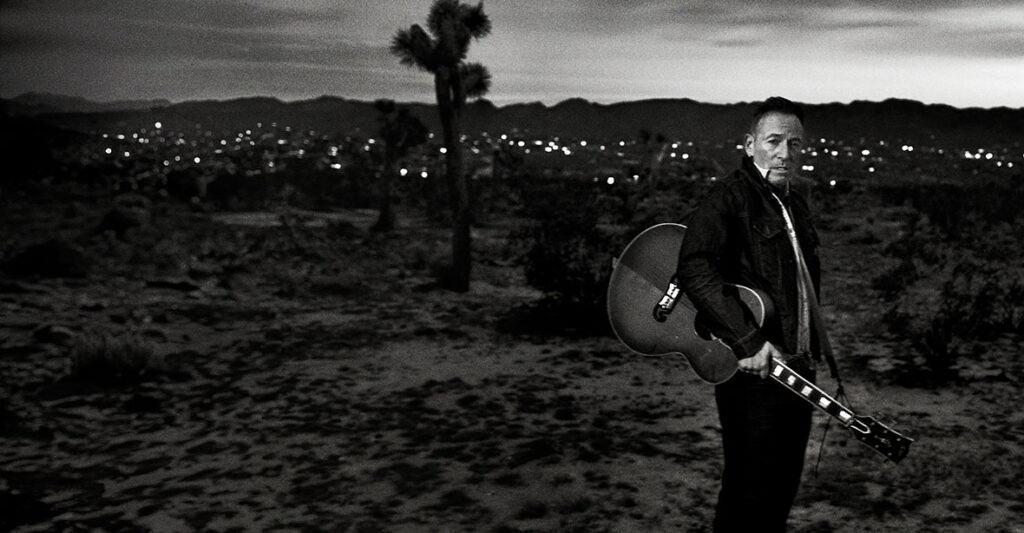
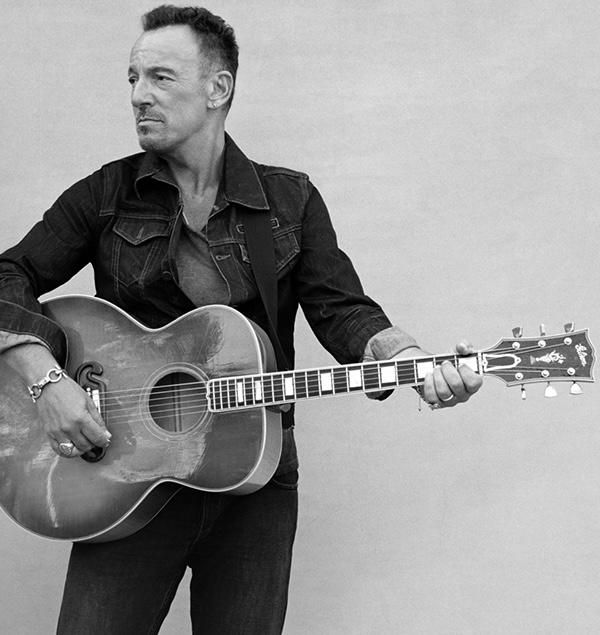
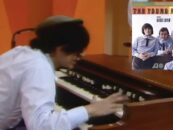
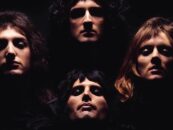
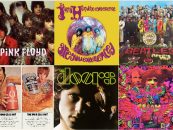
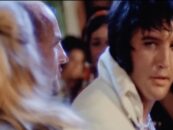

1 Comment so far
Jump into a conversationnot sure this comment will be published, but youtube has 1 listing of all 83 tracks; will it remain in place or be taken down? ???